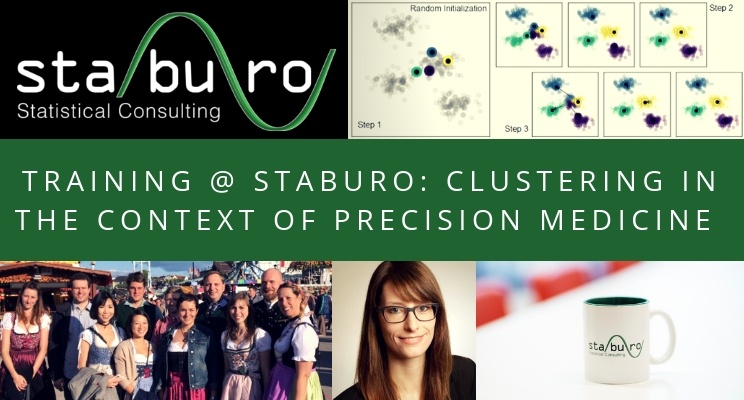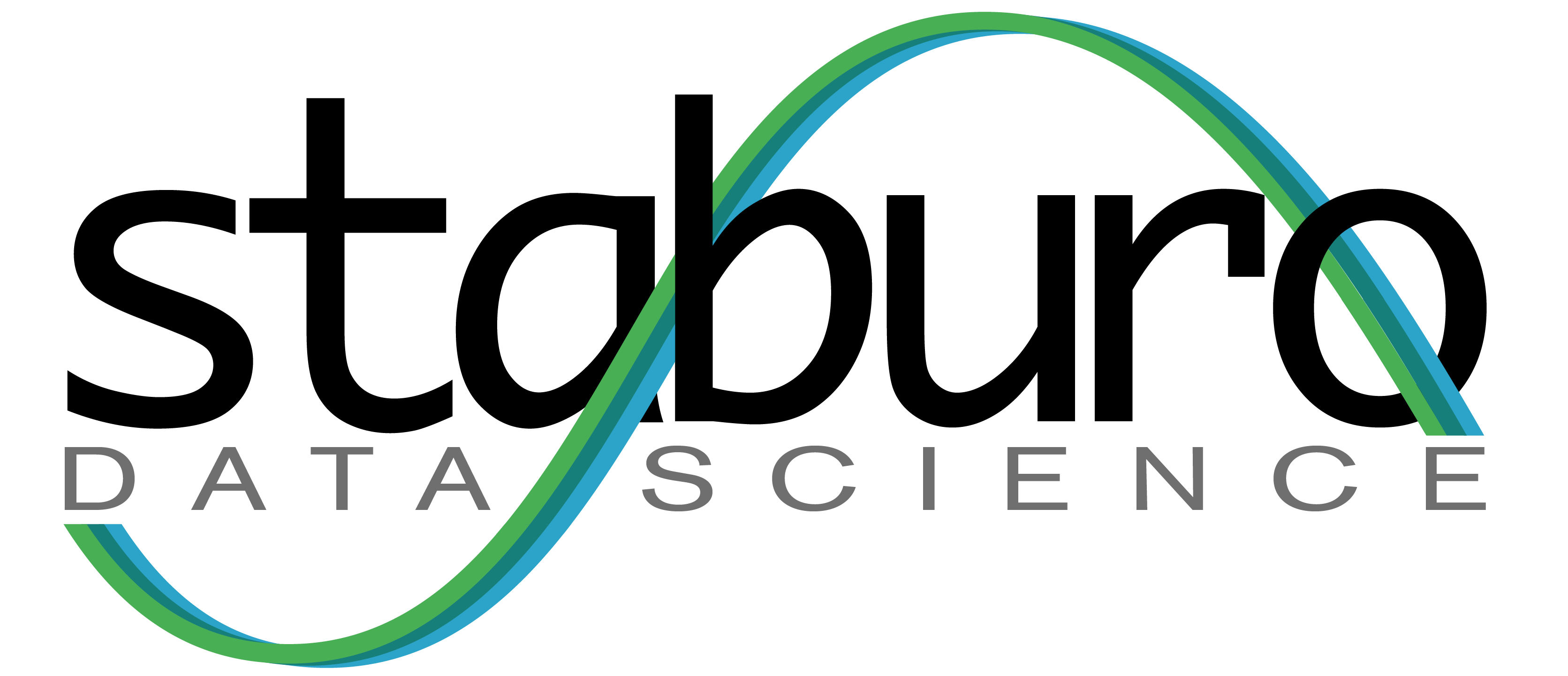
Training@Staburo: clustering in the context of precision medicine
This presentation about clustering, differentiated between supervised and unsupervised methods, and introduced clustering as an important tool for subgroup identification, in the context of precision medicine and clinical trials.
Precision medicine means tailoring the treatment to specific patient subgroups, i.e. patients characterized by specific genetic alterations, or similar biomarker profiles. Clustering, as an unsupervised technique for subgroup identification, groups patients e.g. based on similarities in biomarkers, rather than on a given knowledge, like tumor type.
The importance of clustering for precision medicine and clinical trials was illustrated, based on two well-known examples of high clinical importance in oncology.
Hierarchical clustering was used to identify several patient subgroups in gene expression data of breast cancer patients. Those subgroups are characterized by different gene expression patterns, as well as different prognosis, regarding clinical endpoints, e.g. overall survival. Especially the HER2 gene is now a well-established prognostic marker, associated with poor survival in breast cancer.
The Consensus Molecular Subgroups in colorectal cancer are cluster-based subgroups with high clinical relevance, as well. Those subgroups were characterized by several expert groups, based on different supervised and unsupervised methods, e.g. hierarchical clustering, or partitional clustering with k-means, as unsupervised techniques. The experts identified 4 subgroups of which one is characterized by poor prognosis in patients with BRAF mutations and MSI.
During this talk, the concepts of both hierarchical and partitional clustering with k-means, were introduced and illustrated based on mentioned examples.

Recent Comments